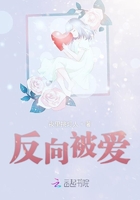The darkness of the shade beneath the trees in this inmost recess of the garden fell upon her like the darkness of that storm in which the desert was blotted out, and it was fearful to her because she felt that she must travel in the storm alone. Till now she had been very much alone in life and had realised that such solitude was dreary, that in it development was difficult, and that it checked the steps of the pilgrim who should go upward to the heights of life. But never till now had she felt the fierce tragedy of solitude, the utter terror of it. As she sat in the /fumoir/, looking down on the smoothly-raked sand, she said to herself that till this moment she had never had any idea of the meaning of solitude. It was the desert within a human soul, but the desert without the sun. And she knew this because at last she loved. The dark and silent flood of passion that lay within her had been released from its boundaries, the old landmarks were swept away for ever, the face of the world was changed.
She loved Androvsky. Everything in her loved him; all that she had been, all that she was, all that she could ever be loved him; that which was physical in her, that which was spiritual, the brain, the heart, the soul, body and flame burning within it--all that made her the wonder that is woman, loved him. She was love for Androvsky. It seemed to her that she was nothing else, had never been anything else.
The past years were nothing, the pain by which she was stricken when her mother fled, by which she was tormented when her father died blaspheming, were nothing. There was no room in her for anything but love of Androvsky. At this moment even her love of God seemed to have been expelled from her. Afterwards she remembered that. She did not think of it now. For her there was a universe with but one figure in it--Androvsky. She was unconscious of herself except as love for him.
She was unconscious of any Creative Power to whom she owed the fact that he was there to be loved by her. She was passion, and he was that to which passion flowed.
The world was the stream and the sea.
As she sat there with her hands folded on her knees, her eyes bent down, and the purple flowers all about her, she felt simplified and cleansed, as if a mass of little things had been swept from her, leaving space for the great thing that henceforth must for ever dwell within her and dominate her life. The burning shame of which she had been conscious on the previous night, when Androvsky told her of his approaching departure and she was stricken as by a lightning flash, had died away from her utterly. She remembered it with wonder. How should she be ashamed of love? She thought that it would be impossible to her to be ashamed, even if Androvsky knew all that she knew. Just then the immense truth of her feeling conquered everything else, made every other thing seem false, and she said to herself that of truth she did not know how to be ashamed. But with the knowledge of the immense truth of her love came the knowledge of the immense sorrow that might, that must, dwell side by side with it.
Suddenly she moved. She lifted her eyes from the sand and looked out into the garden. Besides this truth within her there was one other thing in the world that was true. Androvsky was going away. While she sat there the moments were passing. They were ****** the hours that were bent upon destruction. She was sitting in the garden now and Androvsky was close by. A little time would pass noiselessly. She would be sitting there and Androvsky would be far away, gone from the desert, gone out of her life no doubt for ever. And the garden would not have changed. Each tree would stand in its place, each flower would still give forth its scent. The breeze would go on travelling through the lacework of the branches, the streams slipping between the sandy walls of the rills. The inexorable sun would shine, and the desert would whisper in its blue distances of the unseen things that always dwell beyond. And Androvsky would be gone. Their short intercourse, so full of pain, uneasiness, reserve, so fragmentary, so troubled by abrupt violences, by ignorance, by a sense of horror even on the one side, and by an almost constant suspicion on the other, would have come to an end.
She was stunned by the thought, and looked round her as if she expected inanimate Nature to take up arms for her against this fate.
Yet she did not for a moment think of taking up arms herself. She had left the hotel without trying to see Androvsky. She did not intend to return to it till he was gone. The idea of seeking him never came into her mind. There is an intensity of feeling that generates action, but there is a greater intensity of feeling that renders action impossible, the feeling that seems to turn a human being into a shell of stone within which burn all the fires of creation. Domini knew that she would not move out of the /fumoir/ till the train was creeping along the river-bed on its way from Beni-Mora.
She had laid down the /Imitation/ upon the seat by her side, and now she took it up. The sight of its familiar pages made her think for the first time, "Do I love God any more?" And immediately afterwards came the thought: "Have I ever loved him?" The knowledge of her love for Androvsky, for this body that she had seen, for this soul that she had seen through the body like a flame through glass, made her believe just then that if she had ever thought--and certainly she had thought --that she loved a being whom she had never seen, never even imaginatively projected, she had deceived herself. The act of faith was not impossible, but the act of love for the object on which that faith was concentrated now seemed to her impossible. For her body, that remained passive, was full of a riot, a fury of life. The flesh that had slept was awakened and knew itself. And she could no longer feel that she could love that which her flesh could not touch, that which could not touch her flesh. And she said to herself, without terror, even without regret, "I do not love, I never have loved, God."















